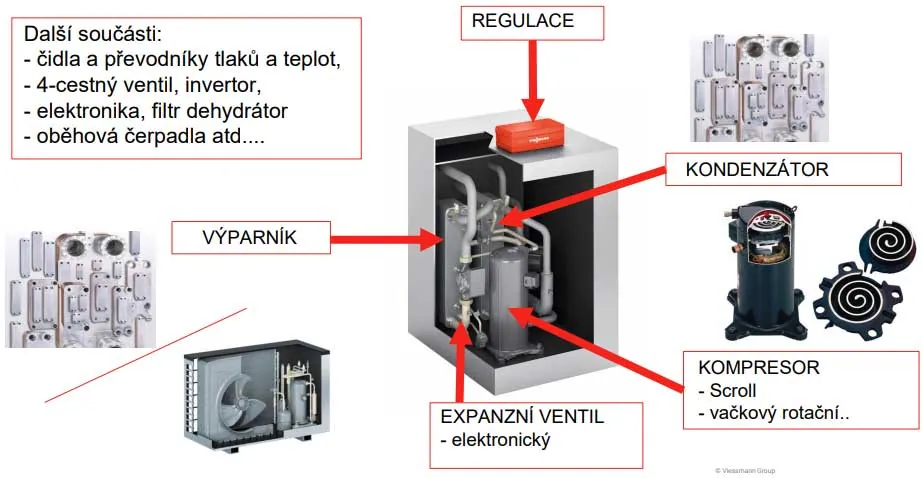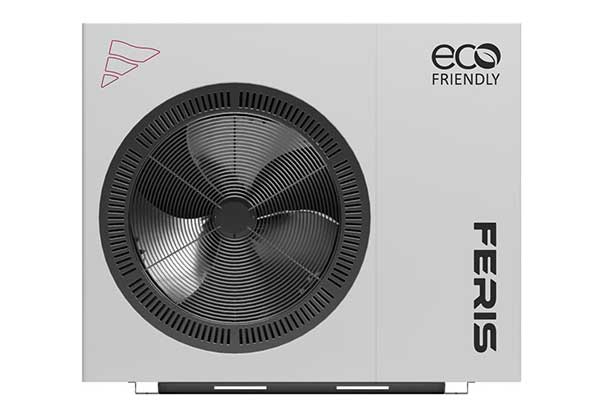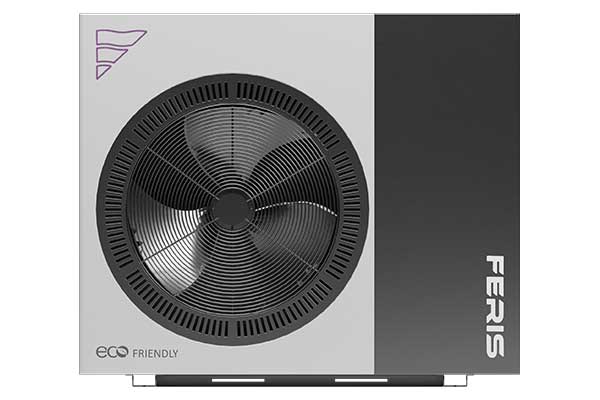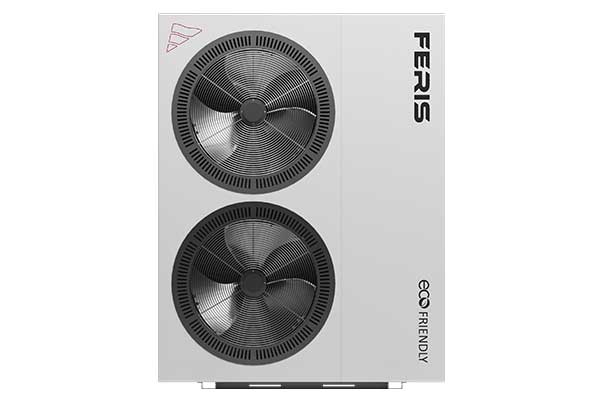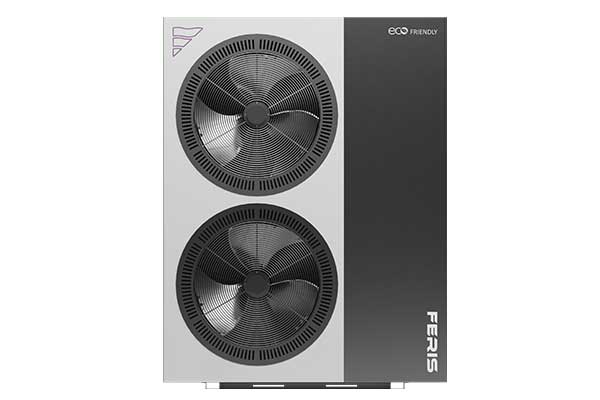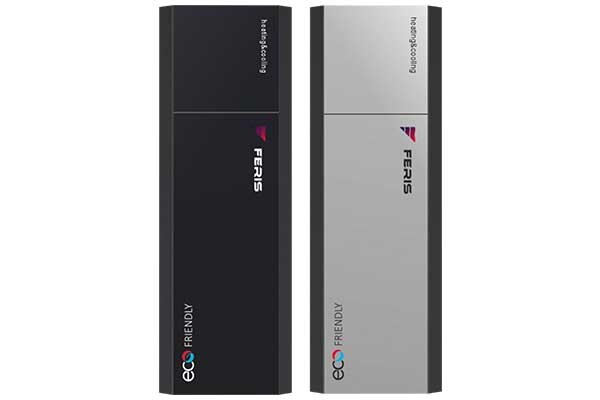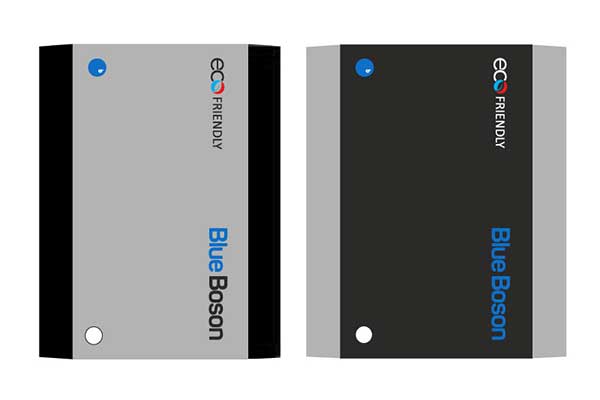Heat pump
Air heat pump
A heat pump reduces the cost of heating your home and therefore your electricity bills.
The function of a heat pump is to produce more heat energy than it consumes. For every 1kW of heat energy used, the pump produces 4-5kW worth of heat. On top of this, you can apply to your distributor for a discounted rate, so your energy bill will be reduced even further.

Heat from the air
Air-to-water heat pumps are the most widespread in our latitudes, thanks to the availability of the source, the ease of installation and the prevailing climatic conditions that ensure reliable functionality regardless of the season. Feris heat pumps offer functionality down to outdoor temperatures as low as -28 °C.
How it works
The technology of typical air source heat pumps means that as the outside temperature drops, their efficiency and heating output decreases. The pumps on the market are fitted with electric heaters to support the operation of the unit.
FERIS air source heat pumps are designed for aggressive weather conditions, are larger than typical units, have large evaporators and the patented iFROST defrost system. The units operate down to -28°C and use air to produce heat energy without the use of electric heaters.
The units are equipped with state-of-the-art fans with EC motors that achieve efficiencies of over 90% and energy savings of up to 50% compared to conventional motors. These motors are quieter over the entire speed range and have a much longer life and reliability. A major advantage of the fans is their ability to adapt to the desired airflow by limiting the speed while maintaining very high efficiency.
The large-diameter fan installed in FERIS heat pumps allows the speed to be reduced while maintaining the desired airflow, thereby reducing noise levels in real terms and providing airflows of 3 000 to 10 000 m3/h.
Advantages of heat pump:
- Effectively addresses both winter heating and summer cooling
- The ecological way of heating houses and buildings
- Low operating costs
- Safety
- Online control via app
- Quick installation
- Low maintenance and service
When modernising, an air-to-water heat pump is the best option. Heat pumps are installed outdoors near the heated building and their purchase costs are low compared to other options.
FPM-EVI DC inverter R32
combining EVI steam injection with an inverter compressor and obtaining high efficiency, high heating medium parameters and low power gradient.
- Heating up to 65 °C
- Operates down to - 28°C
- Refrigerant R32
- Additional EVI injection technology
- Power modulation up to 1.6 kW
- High efficiency COP/SCOP
- Class A+++
- Remote control application
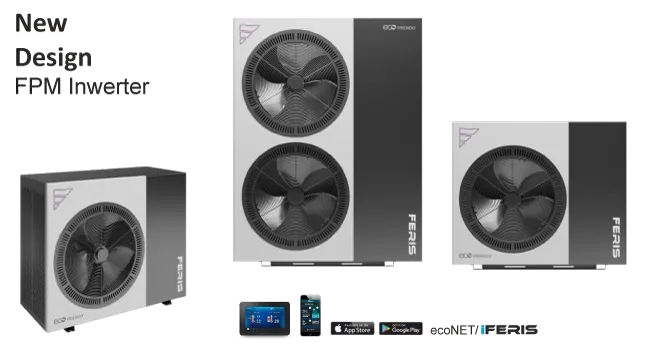
We offer a product line of FERIS FPM-EVI inverter
in the range of 8, 4, 13, 18, 23 kW.
What do you gain when you buy a FERIS air source heat pump?
- Energy class A+++*
- Energy class A++
- Heat pumps designed for cold European climates
- Cooling and heating
- Operation down to - 20 C outdoors without the support of an electric heater
- Intelligent mobile control system iFERIS
- Weather forecast function for 24 hours ahead by connecting the system to a weather station
- Large 20-channel heat exchanger with large heat transfer surface
- Rapid evaporator defrost system iFROST
- Equipment made from the best and proven components on the market
- Control unit with digital data transmission and internet module as standard
- On-line control with intuitive graphical interface
- Heat pump cover made of anticorrosive metal sheet
- Buffer tank heating control function at temperatures below - 20 C
* The FERIS air source heat pumps were tested at a central heating supply temperature of 25 °C and achieved an energy class A+++ and COP 5.0. As there are no relevant standards that take into account the methodology for testing the operation of heat pumps at flow temperatures below 35 °C, FERIS air source heat pumps have not been tested at flow temperatures below 35 °C, it is not possible to issue an official A+++ energy label.
If your old gas boiler is a Class 1 or Class 2 boiler, it needs to be replaced no later than 1 September 2024 under the new Environmental Protection legislation. If your gas boiler is newer, you can add a heat pump. This will also save you considerable money on heating your home.
Hydrobox
for monoblock heat pumps
- Easy and quick installation
- Heating, hot water, cooling
- Built-in automatic steering
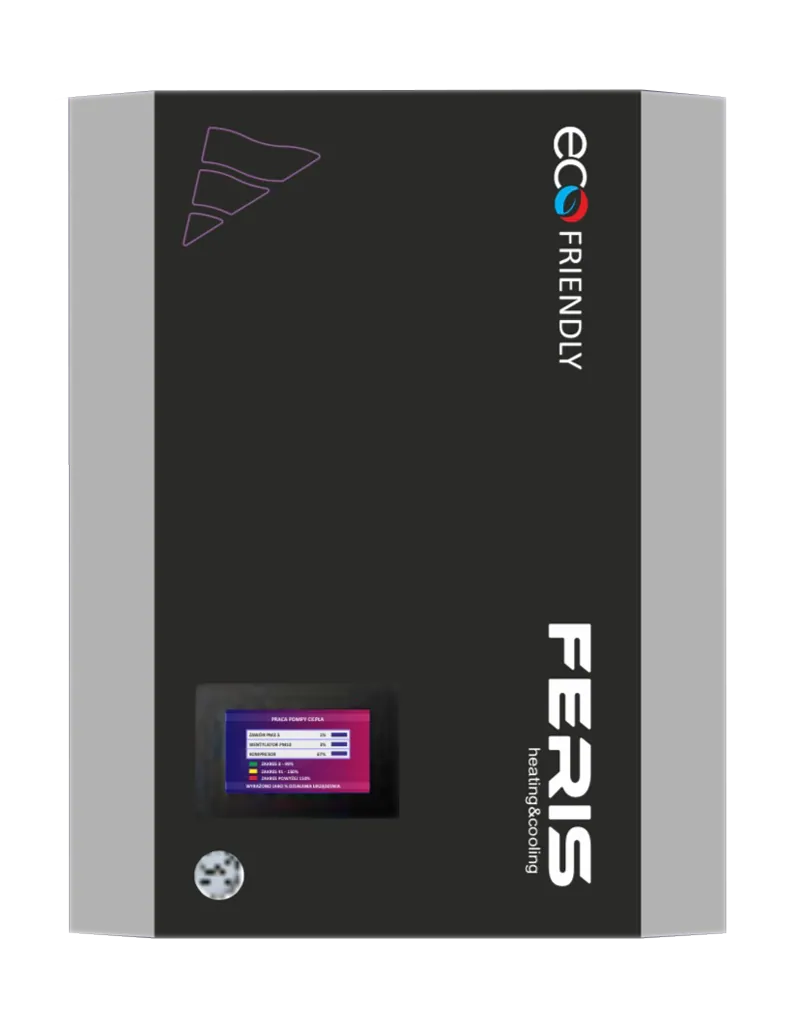
- Support via internet
- Three-stage heater set 3-6-9 kW
- Automation that controls the operation of the heat pump
- Built-in circulation pump
- Automation adapted to 3 central heating circuits
- Combination with photovoltaic system
- Electrical and hydraulic protection
- Magnetic sludge separator
- C.O. Safety group with 12l tank, manometer
- Electric switch
Hydraulic tower FPWH
- Complete new generation transfer station for monobloc air source heat pumps.
- Multifunctional solution for the installation of air-to-water heat pump units.
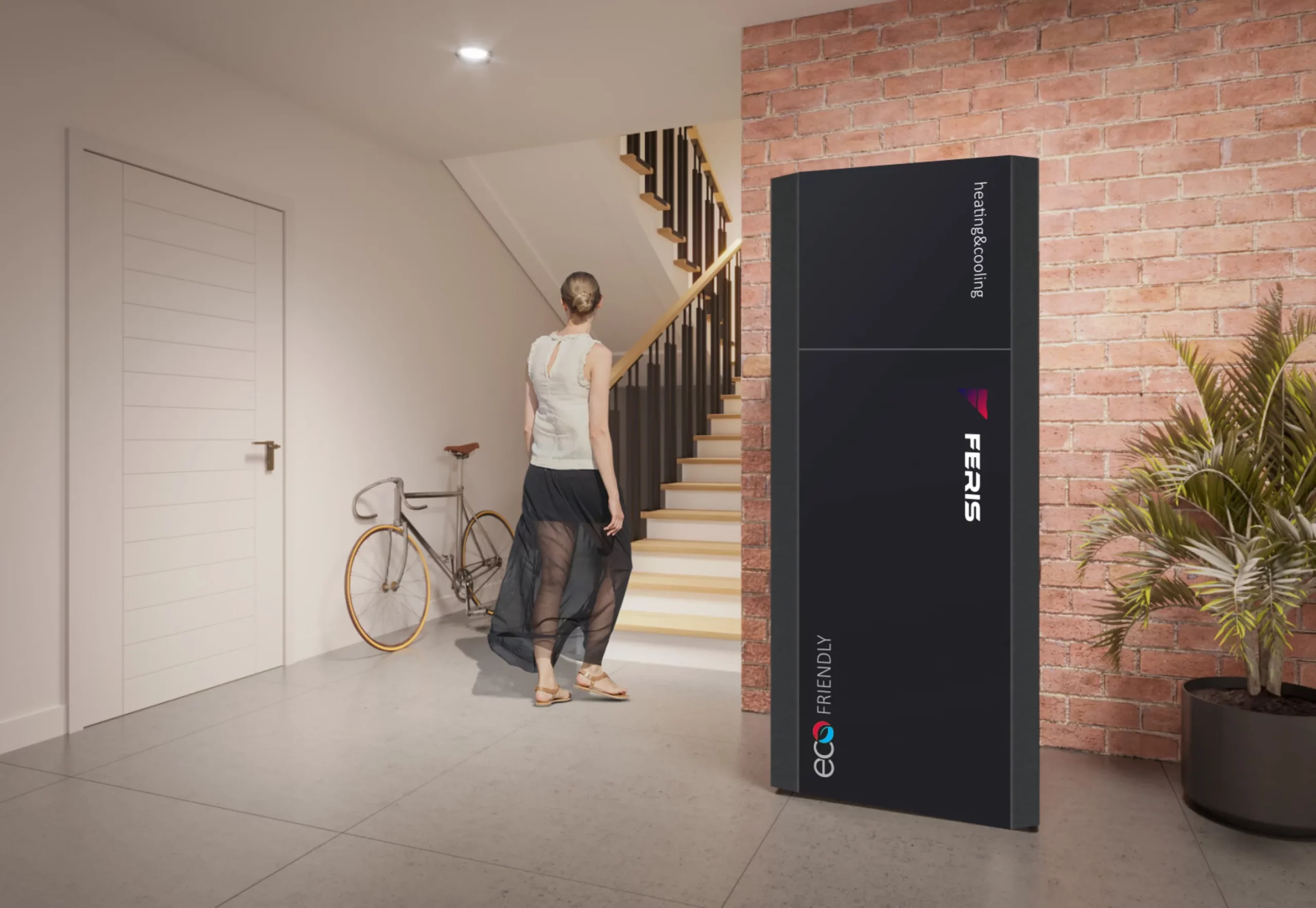
- Heater 3-6-9 kW
- Heating and cooling
- Units 5 - 25 kW
- TUV 275 L
- CO filling 60-100L
- 2 cooling circuits
- Easy and quick installation
- Remote control
- Service and diagnosis online
- Highly aesthetic and compact
The heat pump achieves much higher efficiency compared to a gas boiler. You can save up to two thirds of the cost compared to gas heating. Thanks to the online app, you can also control the temperature in your home remotely.
Installation is completed in 1-3 days. The heat pump can be connected to your current heating system.
To ensure a longer life of the pump, a service once a year is recommended.
Switching from a boiler to a heat pump means changing to a completely eco-friendly solution. No more fuel or gas is burned and the energy is obtained in a renewable way. Heat pumps generally reduce CO2 emissions by 70%!
